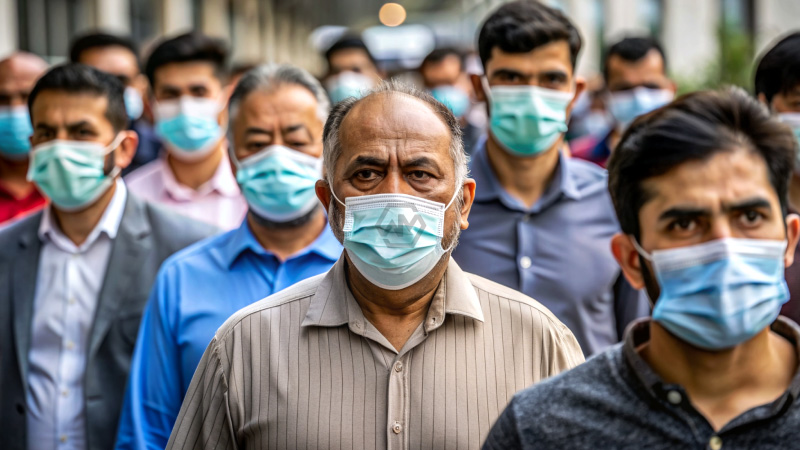- India reports 6,133 active COVID-19 cases, with six deaths in the last 24 hours.
- Kerala, Gujarat, West Bengal, and Delhi among the most affected states.
- Surge linked to mild but transmissible Omicron sub-variants like JN.1 and XFC.
India has recorded a significant uptick in COVID-19 cases, with 6,133 active cases as of Sunday morning and six additional deaths in the past 24 hours. Kerala continues to lead in active infections, followed by Gujarat, West Bengal, and Delhi.
This current wave is attributed to the spread of Omicron sub-variants such as JN.1 and XFC, which, although highly transmissible, are not classified as variants of concern by the WHO.
COVID-19 Cases Resurge in India: What the Latest Spike Means
In a concerning turn, India has reported over 6,000 active COVID-19 cases for the first time in recent months, marking a notable jump from just 257 cases on May 22. The rapid rise in infections highlights the evolving nature of the virus, especially as new sub-variants emerge.
Kerala stands out with nearly 2,000 active cases, continuing its trend as the most impacted state. Authorities in Gujarat, West Bengal, and Delhi have also reported a steady increase. The Union Health Ministry noted that 769 new infections were recorded in the past 48 hours.
To address this resurgence, the central government has conducted mock drills nationwide to evaluate healthcare system preparedness. Instructions have been issued to ensure hospitals are equipped with oxygen, essential medicines, and sufficient isolation capacity.
Alongside clinical management, a robust surveillance mechanism has been deployed. Authorities are focusing on Influenza-Like Illness (ILI) and Severe Acute Respiratory Illness (SARI) testing, and positive samples are being sent for genome sequencing under the ICMR network to detect any significant mutations early.
While the rise in COVID-19 cases is cause for caution, India’s health infrastructure appears better prepared than in past waves. Continued vigilance, responsible behavior, and timely data sharing will be key to managing the current surge.
“We are not done with COVID-19. The virus is still evolving, and we must remain prepared.” – Dr. Soumya Swaminathan, Former WHO Chief Scientist



